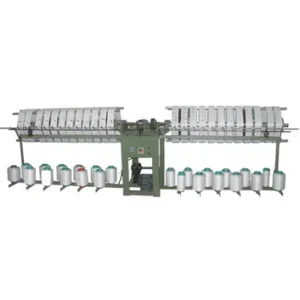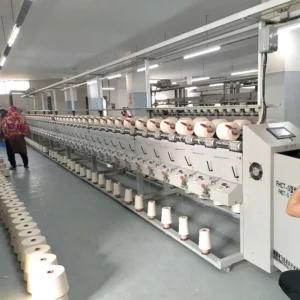In today’s environmentally conscious marketplace, transparency in textile production is more crucial than ever.
Consumers are increasingly demanding to know the origins of their clothing and the ethical practices behind its creation.
Blockchain technology offers a powerful solution by providing a transparent and immutable record of every step in the textile supply chain.
This article will outline how blockchain can enhance sustainability and transparency in textile production, making it easier for consumers and manufacturers to engage in responsible practices.
What Is Blockchain Technology?
Defining Blockchain
Blockchain is a decentralized digital ledger that securely records transactions across multiple computers.
This technology ensures that records cannot be altered retroactively, which provides a high level of data integrity.
Each block in the chain contains a unique cryptographic hash, further securing the entire system against fraud and unauthorized modifications.
Key Features of Blockchain
The primary features of blockchain include decentralization, immutability, and transparency.
These characteristics make it an ideal solution for tracking materials and processes in the textile industry.
By eliminating the need for a central authority, blockchain enhances trust among participants in the supply chain while reducing the potential for manipulation.
Why It Matters for the Textile Industry
As sustainability becomes a priority, the textile industry needs tools that support ethical production.
Blockchain provides a means to document the journey of textiles from raw materials to retail, fostering trust between manufacturers and consumers.
Furthermore, this accountability can enhance brand reputation and customer loyalty as consumers become more informed and concerned about sustainable practices.
Also Read:
- How to Source Sustainable Raw Materials for Textile Manufacturing
- Selecting the Appropriate Automation Technology for Sustainable Textile Production
- How Can Textile Factories Reduce Their Carbon Footprint?
How Does Blockchain Improve Transparency?
Traceability of Raw Materials
Blockchain allows manufacturers to trace raw materials back to their sources, ensuring they were sourced ethically and sustainably.
Tis traceability helps build consumer confidence in the products they purchase.
Additionally, it empowers consumers to make informed choices that align with their values regarding social responsibility and environmental concerns.
Verification of Production Practices
Through blockchain, companies can provide verifiable records of their production processes, including labor practices and environmental standards.
This transparency is essential for companies aiming to demonstrate their commitment to sustainability.
By making these records publicly accessible, businesses can further strengthen their legitimacy and appeal to ethically minded consumers.
Real-Time Data Access
Blockchain technology provides real-time access to data for all stakeholders in the supply chain.
This capability allows manufacturers to quickly address any issues that may arise and ensure continuous compliance with sustainability standards.
Moreover, real-time data sharing promotes proactive decision-making and enhances collaboration among supply chain partners.
What Are the Benefits of Using Blockchain in Sustainable Textile Production?
Building Consumer Trust
By utilizing blockchain, manufacturers can offer consumers a transparent view of their supply chain, thereby building trust.
Consumers are more likely to choose brands that demonstrate ethical practices and transparency.
Furthermore, this trust can lead to increased word-of-mouth referrals and positive reviews, enhancing brand visibility.
Enhancing Brand Reputation
Brands that leverage blockchain technology for sustainability can enhance their reputation in an increasingly eco-conscious market.
This positive perception can lead to customer loyalty and competitive advantages.
As consumers become more discerning, a strong sustainability reputation can attract new customers who prioritize environmental commitments.
Reducing Fraud and Counterfeiting
Blockchain’s secure record-keeping prevents fraud and counterfeiting, ensuring that consumers receive authentic, sustainably sourced products.
This benefit protects both the brand’s integrity and consumer interests.
Additionally, reducing counterfeit products helps maintain fair competition and supports businesses that adhere to ethical sourcing practices.
What Steps Are Involved in Implementing Blockchain?
Assessing Current Supply Chain Practices
Before implementing blockchain, companies should review their existing supply chain practices to identify areas where transparency can be improved.
This assessment will inform how blockchain can be applied effectively.
Identifying specific pain points will also help in tailoring the blockchain solution to meet the unique needs of the business.
Choosing the Right Blockchain Platform
Selecting a blockchain platform that aligns with the company’s needs and goals is crucial.
Various platforms offer different features, so it’s important to evaluate them based on user-friendliness, scalability, and integration capabilities.
Conducting pilot testing with a few platforms can also provide insights into which one best meets the organization’s requirements.
Training Employees and Stakeholders
For effective implementation, training employees and stakeholders on blockchain technology is essential.
Understanding how to use the system will foster buy-in and encourage effective use throughout the supply chain.
Regular training sessions and updates can ensure that everyone stays informed about new features and best practices.
Integrating with Existing Systems
Successful integration of blockchain with existing inventory management and production systems will enhance efficiency.
This integration ensures that data flows seamlessly and that all stakeholders benefit from enhanced transparency.
Moreover, a smooth integration process can minimize disruptions and promote a quicker adaptation to the new technology.
What Challenges Might Companies Face When Using Blockchain?
Resistance to Change
Implementing new technology often meets resistance from employees accustomed to existing systems.
Overcoming this resistance requires effective communication about the benefits of blockchain for both the company and its employees.
Additionally, involving employees in the implementation process can help them feel a sense of ownership and reduce apprehension toward the new system.
Complexity of Implementation
The technical aspects of setting up a blockchain system can be complex, particularly for smaller manufacturers.
Seeking assistance from technology experts can simplify the implementation process.
Moreover, developing a phased approach to implementation can help manage complexity by allowing gradual adaptation to the new technology.
Data Privacy Concerns
While blockchain enhances transparency, it also raises questions about data privacy.
Companies must navigate these concerns carefully to ensure that sensitive information remains protected while still achieving transparency.
Implementing appropriate encryption and data access protocols can help mitigate privacy concerns while leveraging the benefits of blockchain technology.
How Can Blockchain Support Sustainable Sourcing?
Ensuring Ethical Sourcing
Blockchain can verify that raw materials are sustainably and ethically sourced.
This assurance is vital for brands that wish to maintain a positive ethical image.
Furthermore, having robust documentation of sourcing practices can enhance consumer trust and loyalty, as customers increasingly demand accountability from brands.
Facilitating Supply Chain Collaboration
Blockchain promotes collaboration among supply chain partners by providing transparent data access.
This collaboration can lead to more responsible sourcing decisions and improved sustainability practices.
When all parties can share information in real-time, it fosters a culture of teamwork focused on ethical and sustainable outcomes.
Encouraging Sustainable Practices
By clearly documenting each step of the supply chain, companies can encourage suppliers to adopt more sustainable practices.
The transparency provided by blockchain holds all parties accountable for their actions, further advancing sustainability.
Additionally, this accountability can incentivize suppliers to innovate and invest in sustainable technologies and methods.
What Is the Future of Blockchain in Textile Production?
Increased Adoption of Blockchain Solutions
As awareness of sustainability and transparency grows, it is likely that more companies will adopt blockchain solutions in their operations.
This trend may redefine industry standards for transparency and ethical production.
Additionally, industry collaborations may emerge, leading to shared blockchain platforms that benefit multiple companies and improve overall supply chain integrity.
Continuous Evolution of Technology
Blockchain technology is continually evolving, offering new features and capabilities that can enhance sustainability efforts in textile production.
Keeping abreast of these advancements will be vital for companies looking to stay ahead in a competitive market.
Companies that proactively integrate innovative blockchain solutions may gain a first-mover advantage, positioning themselves as leaders in sustainable practices.
Greater Consumer Engagement
As consumers become more engaged with the sustainability and ethics of their purchases, blockchain can provide them with the information they seek.
Increased consumer interest in understanding the origins of their products will drive brands to adopt transparent practices and create more meaningful connections with their customers.
Furthermore, brands that leverage blockchain for transparency can differentiate themselves in the market, attracting consumers who prioritize ethical consumption.
Conclusion
Leveraging blockchain technology in sustainable textile production offers significant benefits, including enhanced transparency, traceability, and consumer trust.
As the textile industry continues to prioritize ethical practices in response to consumer demand, blockchain stands out as a powerful tool to support these initiatives.
By understanding and implementing blockchain effectively, textile manufacturers can not only improve their operations but also contribute positively to a more sustainable and transparent industry, ultimately creating a win-win situation for both businesses and consumers.
Embracing blockchain is not only a step towards greater accountability in textile production but also a commitment to fostering a more sustainable future.










